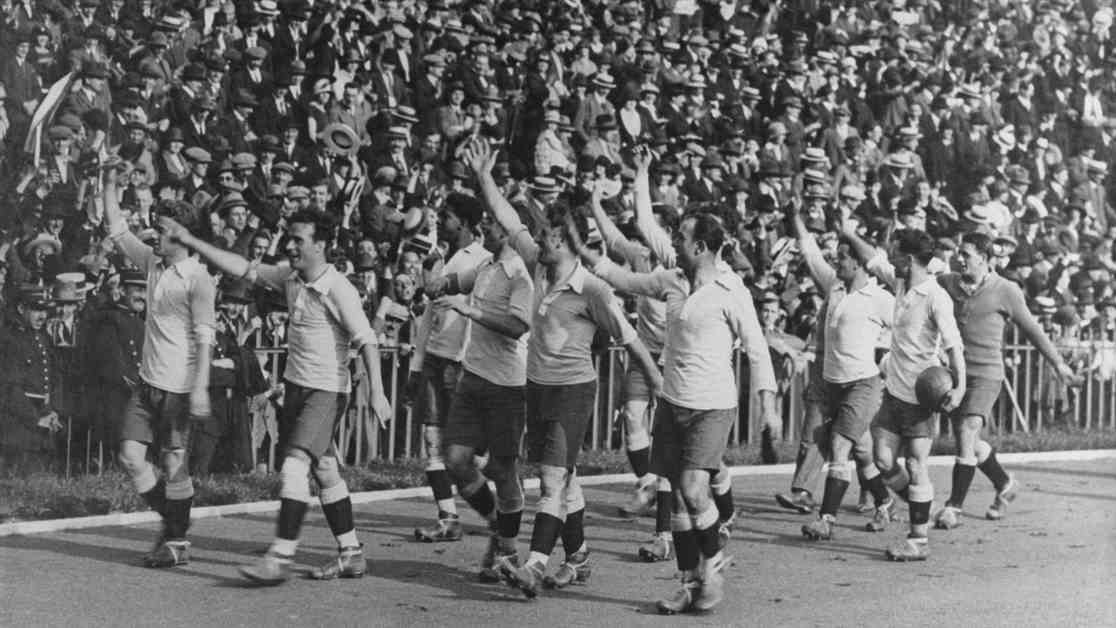How Uruguay’s Shocking Victory in the 1924 Olympics Revolutionized Soccer
Soccer saw a significant shift 100 years ago during the 1924 Paris Olympics tournament when Uruguay, a tiny South American team, amazed the world with their stunning performance. In a time when European teams dominated the sport, Uruguay’s unexpected victory marked a turning point in soccer history.
Uruguay, with a population of just 1.6 million, defied all odds by winning all five of their matches in the tournament, culminating in a 3-0 victory over Switzerland in the gold medal game. Their style of play, characterized by graceful freedom and skillful ball control, left traditional European powerhouses bewildered and transformed the way soccer was perceived.
The journey to the Olympics was not an easy one for Uruguay. Facing financial challenges and logistical hurdles, the team embarked on a 6,000-mile journey to Europe, supported by the generosity of their community and the determination of their players. Despite the initial doubts and low expectations, Uruguay’s performance on the field spoke for itself, showcasing their exceptional talent and passion for the game.
Led by standout players like Héctor “El Mago” Scarone and José Leandro Andrade, Uruguay’s victory in the Olympics marked the beginning of South America’s soccer dominance on the world stage. Their success paved the way for future generations of South American players and established a legacy of excellence in the sport.
The impact of Uruguay’s triumph reverberated beyond the field, captivating the hearts of fans worldwide and inspiring a new era of soccer greatness. As the Olympics return to Paris a century later, the legacy of Uruguay’s historic victory continues to resonate in the world of soccer, underscoring the enduring influence of a team that defied expectations and changed the game forever.


















